You know those albums that are really just absolute perfection from beginning to end? I’m not even talking about albums where every song is good so we all collectively agree the album is amazing. No. I’m talking about albums that are best appreciated when you listen to them from start to finish, albums that are true listening experiences if you take the time to put on your best pair of headphones and soak in all that it has to offer; where you might even end up looking like this while you do so:

Here are 10 albums of that caliber that I like to enjoy best from beginning to end, each for different reasons.
1. Avril Lavigne, Let Go
If you ask me, Avril Lavigne never topped the perfection that was her 2002 debut album. It really solidified her into this pop punk princess sound that simultaneously rejected pop music conventions while also incorporating elements of post-grunge music to make her own vision of pop meets punk that defined a large part of the early 2000s for most. Either you sing along to every word of “Sk8er Boi” or you don’t listen to it at all, CAPEESH?!
If you ask me, Avril Lavigne never topped the perfection that was her 2002 debut album. It really solidified her into this pop punk princess sound that simultaneously rejected pop music conventions while also incorporating elements of post-grunge music to make her own vision of pop meets punk that defined a large part of the early 2000s for most. Either you sing along to every word of “Sk8er Boi” or you don’t listen to it at all, CAPEESH?!
2. Adele, 21

All of Adele’s albums are spectacular (even if you think she’s overrated, you must admit she’s talented), and as much as listening to each of her three albums individually all present amazing listening experiences, I truly believe 21 to be her best album in that sense. It doesn’t mean I don’t love 19 and 25 any less, but 21 brings back so many memories of the year that album came out and how everyone was newly and rightfully obsessed with Adele (except for me; my obsession with her started after she won Best New Artist at the Grammys in 2009 and I couldn’t stop listening to “Chasing Pavements” for months afterwards). Not only that, every song flows beautifully, one after the next, without a single dud. Truly a listening experience.
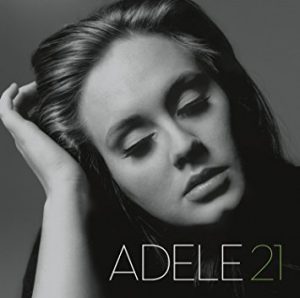
All of Adele’s albums are spectacular (even if you think she’s overrated, you must admit she’s talented), and as much as listening to each of her three albums individually all present amazing listening experiences, I truly believe 21 to be her best album in that sense. It doesn’t mean I don’t love 19 and 25 any less, but 21 brings back so many memories of the year that album came out and how everyone was newly and rightfully obsessed with Adele (except for me; my obsession with her started after she won Best New Artist at the Grammys in 2009 and I couldn’t stop listening to “Chasing Pavements” for months afterwards). Not only that, every song flows beautifully, one after the next, without a single dud. Truly a listening experience.
3. Lana Del Rey, Born to Die

This album doesn’t get the credit it deserves for reasons that still mystify me. Born to Die was Lana Del Rey’s major-label debut album from 2012 that reintroduced the femme fatale pop rebel image back into the mainstream, and as much as it is appreciated by music critics now retroactively, I seem to remember a lot of negative speech about it when it first came out. A widely panned performance by Del Rey on Saturday Night Live didn’t help matters, but the larger issue was that Del Rey was reinventing herself from a previous sound and image, a sound and image that was resurrected on the Internet and brought the singer a lot of unnecessarily negative backlash. In that, it was a distinctively female backlash: after all, a male singer can reinvent himself with a new look and sound every decade and the world will still bow at his feet (*cough* Bob Dylan *cough*) but as soon as a female singer does the same, they’re trying too hard, trying to be young again by appealing to the young, things of this nature. It is for these reasons that I believe mainstream music critics prefer to celebrate pop rebels like Lorde and Halsey than to acknowledge the impact of an artist like Lana Del Rey, who Lorde said on multiple occasions heavily influenced her 2013 debut album. In any event, Born to Die is a masterpiece of an album that set the stage for so much in pop in the years to follow.
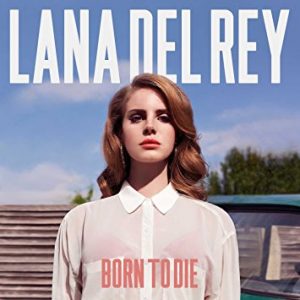
This album doesn’t get the credit it deserves for reasons that still mystify me. Born to Die was Lana Del Rey’s major-label debut album from 2012 that reintroduced the femme fatale pop rebel image back into the mainstream, and as much as it is appreciated by music critics now retroactively, I seem to remember a lot of negative speech about it when it first came out. A widely panned performance by Del Rey on Saturday Night Live didn’t help matters, but the larger issue was that Del Rey was reinventing herself from a previous sound and image, a sound and image that was resurrected on the Internet and brought the singer a lot of unnecessarily negative backlash. In that, it was a distinctively female backlash: after all, a male singer can reinvent himself with a new look and sound every decade and the world will still bow at his feet (*cough* Bob Dylan *cough*) but as soon as a female singer does the same, they’re trying too hard, trying to be young again by appealing to the young, things of this nature. It is for these reasons that I believe mainstream music critics prefer to celebrate pop rebels like Lorde and Halsey than to acknowledge the impact of an artist like Lana Del Rey, who Lorde said on multiple occasions heavily influenced her 2013 debut album. In any event, Born to Die is a masterpiece of an album that set the stage for so much in pop in the years to follow.
4. Shania Twain, Up!

Up! is Shania Twain’s best album and this court is now adjourned. She made a lot of great music with her ex-hubby producer Mutt Lange, but this album is definitely their best. We all love the revolutionary country pop tunes they produced on albums like Come On Over (1997), which would become one of the best-selling albums of all-time, but on Up!, Twain is settled into a role that came more naturally to her; she’s said publicly numerous times that she didn’t like the confines that pop music put on her, which is why she never defined herself as an artist of any particular genre. Every song works, and is a perfect example of a series of songs that are best appreciated to when listened to together, in order. As much as I don’t want to acknowledge that Mutt Lange did something right (after what he put Ms. Twain through in recent years, after all), but not only does Twain hit every right note on this album, it’s also amazingly produced.
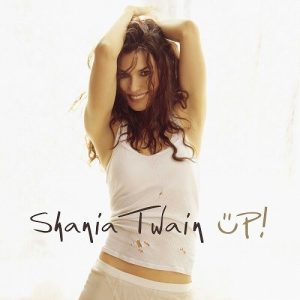
Up! is Shania Twain’s best album and this court is now adjourned. She made a lot of great music with her ex-hubby producer Mutt Lange, but this album is definitely their best. We all love the revolutionary country pop tunes they produced on albums like Come On Over (1997), which would become one of the best-selling albums of all-time, but on Up!, Twain is settled into a role that came more naturally to her; she’s said publicly numerous times that she didn’t like the confines that pop music put on her, which is why she never defined herself as an artist of any particular genre. Every song works, and is a perfect example of a series of songs that are best appreciated to when listened to together, in order. As much as I don’t want to acknowledge that Mutt Lange did something right (after what he put Ms. Twain through in recent years, after all), but not only does Twain hit every right note on this album, it’s also amazingly produced.
5. Taylor Swift, Red

Red is not only Taylor Swift’s best album but quite possibly her magnum opus. Don’t EVEN @ me. For someone like Swift, a masterclass songwriter who broke into country music while always displaying a certain sensibility for pop, Red expertly displays both her ability to deliver excellent country and excellent pop. Mind you, I would describe this album as more country than pop (if you were looking to be impressed with what Swift can do with pop music, I would sooner recommend 1989 and definitely Reputation), and definitely not like the country pop from her earlier years. Red is primarily a country album with some pop songs (all of which were made singles, leading to several critics describing this album as her first to display her prospect as a pop star), but it differentiates itself from the more distinct yet somewhat immature country pop jams from albums like Fearless and Speak Now by adopting a much more mature sound where Swift can continue to prove she knows how to write a damn song (if you don’t think “All Too Well” is the best song she’s ever written I don’t know how to talk to you). Red is another great example of an album that is best appreciated when listened to from beginning to end, where the A+ songwriting and production can work its magic.
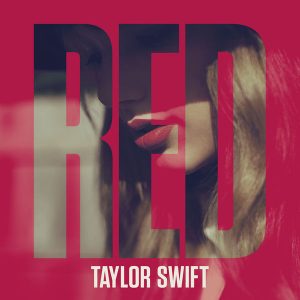
Red is not only Taylor Swift’s best album but quite possibly her magnum opus. Don’t EVEN @ me. For someone like Swift, a masterclass songwriter who broke into country music while always displaying a certain sensibility for pop, Red expertly displays both her ability to deliver excellent country and excellent pop. Mind you, I would describe this album as more country than pop (if you were looking to be impressed with what Swift can do with pop music, I would sooner recommend 1989 and definitely Reputation), and definitely not like the country pop from her earlier years. Red is primarily a country album with some pop songs (all of which were made singles, leading to several critics describing this album as her first to display her prospect as a pop star), but it differentiates itself from the more distinct yet somewhat immature country pop jams from albums like Fearless and Speak Now by adopting a much more mature sound where Swift can continue to prove she knows how to write a damn song (if you don’t think “All Too Well” is the best song she’s ever written I don’t know how to talk to you). Red is another great example of an album that is best appreciated when listened to from beginning to end, where the A+ songwriting and production can work its magic.
6. Alessia Cara, Know-It-All

Quite possibly one of the most stunning debut albums I’ve ever heard, while also leaving some legroom for growth and maturation in terms of sound and lyrics. If you were to ever crave an album from another amazing pop-meets-R&B rebel that perfectly captures themes of youth and self-worth, I can only recommend Know-It-All. It took three years after this album for Alessia Cara to win the Grammy for Best New Artist, but the win was oh so well deserved and I will now return to patiently waiting for her next album.
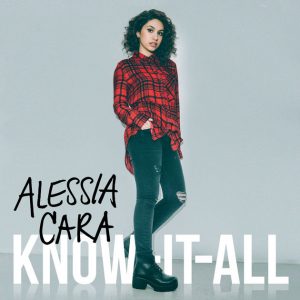
Quite possibly one of the most stunning debut albums I’ve ever heard, while also leaving some legroom for growth and maturation in terms of sound and lyrics. If you were to ever crave an album from another amazing pop-meets-R&B rebel that perfectly captures themes of youth and self-worth, I can only recommend Know-It-All. It took three years after this album for Alessia Cara to win the Grammy for Best New Artist, but the win was oh so well deserved and I will now return to patiently waiting for her next album.
7. Kesha, Rainbow

What can I even say about Rainbow when there’s so much to love? I liked Ke$ha as much as the next person circa 2010, but there was always something about her that prevented me from loving her enough to have all of her songs in my iTunes. Maybe it was the excess of party songs. Maybe it was the processed, generic quality even her catchiest of songs had, which I never would have realized back then. But when Kesha removed the dollar sign from her name and famously sued her former producer, Dr. Luke, for physical, emotional and sexual abuse, everything about that girl changed, and I got answers to a lot of my questions. Ke$ha was nothing but a patriarchal creation by a music executive who knew he could make money off of it, squandering the large amount of true talent that Kesha really does have. Critics didn’t hate Ke$ha’s albums (nor did I, her second album Warrior is actually really good), but the electropop genre of those two albums always called her actual ability to sing into question, to which the singer said on at least one occasion that singing “is one of the few things [she] can do.” With a high-profile lawsuit and a variety of emotional issues (including an eating disorder) behind her, Kesha released her third album Rainbow last year and not only revealed the true, authentic and real Kesha (who really can sing, you guys), she also tackled the variety of the issues she had been through with her music that hit home for a lot of listeners (myself included), including depression, anxiety and other emotional baggage. All I can do is be in utter awe of this woman’s utter strength and perseverance to go through so much shit over the last five years and come out clean on the other side, finding a rainbow after the storm. In that, listening to Rainbow a countless amount of times since it came out, I have found myself singing along not only in admiration but with a sense of, “If Kesha can stay strong, so can I.”
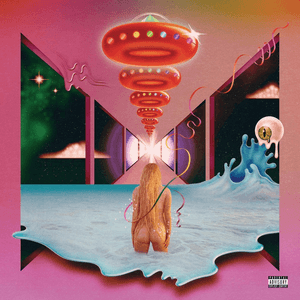
What can I even say about Rainbow when there’s so much to love? I liked Ke$ha as much as the next person circa 2010, but there was always something about her that prevented me from loving her enough to have all of her songs in my iTunes. Maybe it was the excess of party songs. Maybe it was the processed, generic quality even her catchiest of songs had, which I never would have realized back then. But when Kesha removed the dollar sign from her name and famously sued her former producer, Dr. Luke, for physical, emotional and sexual abuse, everything about that girl changed, and I got answers to a lot of my questions. Ke$ha was nothing but a patriarchal creation by a music executive who knew he could make money off of it, squandering the large amount of true talent that Kesha really does have. Critics didn’t hate Ke$ha’s albums (nor did I, her second album Warrior is actually really good), but the electropop genre of those two albums always called her actual ability to sing into question, to which the singer said on at least one occasion that singing “is one of the few things [she] can do.” With a high-profile lawsuit and a variety of emotional issues (including an eating disorder) behind her, Kesha released her third album Rainbow last year and not only revealed the true, authentic and real Kesha (who really can sing, you guys), she also tackled the variety of the issues she had been through with her music that hit home for a lot of listeners (myself included), including depression, anxiety and other emotional baggage. All I can do is be in utter awe of this woman’s utter strength and perseverance to go through so much shit over the last five years and come out clean on the other side, finding a rainbow after the storm. In that, listening to Rainbow a countless amount of times since it came out, I have found myself singing along not only in admiration but with a sense of, “If Kesha can stay strong, so can I.”
8. Alanis Morissette, Jagged Little Pill

I honestly don’t even know how to enjoy Jagged Little Pill unless I’m listening to it from beginning to end, start to finish. Every song is expertly crafted, so much so that I almost don’t want to listen to just one song on its own without hearing what comes next. Can you even believe that music’s most iconic alt rocker used to sing dance-pop before this album?! It still floors me.
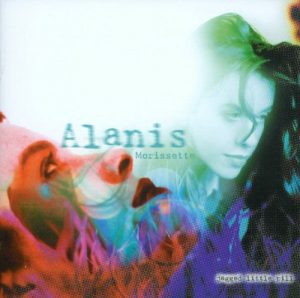
I honestly don’t even know how to enjoy Jagged Little Pill unless I’m listening to it from beginning to end, start to finish. Every song is expertly crafted, so much so that I almost don’t want to listen to just one song on its own without hearing what comes next. Can you even believe that music’s most iconic alt rocker used to sing dance-pop before this album?! It still floors me.
9. Troye Sivan, Blue Neighbourhood

Full disclosure: I only learned to appreciate this album quite recently, after giving it a multitude of chances to strike me as something worthwhile. I’m not much of an indie pop person—I like Tegan and Sara, are they even considered indie pop?—so when it comes to listening to an indie artist, I really do have to brace myself. Indie music, like indie film, can either be a pleasantly surprising hidden gem or an outrageously strange display of something weird that the artist wanted to make. There is no in between. So when Troye Sivan (a former YouTuber and Australian actor who portrayed his musical aspirations online for years) released his full-length debut album with songs like “Youth” and “Wild” (the Alessia Cara remix, of course), I was intrigued. To top it off, Sivan is gay, and to say we’ve ever had an openly gay male pop star who appeals to young adults would probably be false, so that does give him a definite advantage. However, his first album didn’t strike me as my cup of tea at all when I first heard it—just a tad too electro/indie pop for Jeffrey, thank you—but once I started to love and appreciate the songs of Sivan’s that I really do like, I thought why not give Blue Neighbourhood another shot. And I’m glad I did. Because as much as it is excessively electro/indie pop at times, the underlying sentiment of the songs are really strong and distinctively queer, which is something we need to have in pop music right now. Not to mention Sivan’s second album is coming any day now AND I’M IN SUSPENSE.
(Edit: It is worth mentioning that, for some bizarre reason, I had never heard of Troye Sivan until last summer, even though he's pretty well known among my age category, when my cousin told me to listen to his song "Wild" with Alessia Cara. So thanks to him for that. WAVE HI TO THE BLOG, TREVOR.)
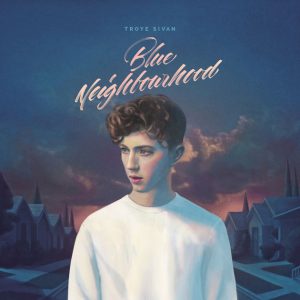
Full disclosure: I only learned to appreciate this album quite recently, after giving it a multitude of chances to strike me as something worthwhile. I’m not much of an indie pop person—I like Tegan and Sara, are they even considered indie pop?—so when it comes to listening to an indie artist, I really do have to brace myself. Indie music, like indie film, can either be a pleasantly surprising hidden gem or an outrageously strange display of something weird that the artist wanted to make. There is no in between. So when Troye Sivan (a former YouTuber and Australian actor who portrayed his musical aspirations online for years) released his full-length debut album with songs like “Youth” and “Wild” (the Alessia Cara remix, of course), I was intrigued. To top it off, Sivan is gay, and to say we’ve ever had an openly gay male pop star who appeals to young adults would probably be false, so that does give him a definite advantage. However, his first album didn’t strike me as my cup of tea at all when I first heard it—just a tad too electro/indie pop for Jeffrey, thank you—but once I started to love and appreciate the songs of Sivan’s that I really do like, I thought why not give Blue Neighbourhood another shot. And I’m glad I did. Because as much as it is excessively electro/indie pop at times, the underlying sentiment of the songs are really strong and distinctively queer, which is something we need to have in pop music right now. Not to mention Sivan’s second album is coming any day now AND I’M IN SUSPENSE.
(Edit: It is worth mentioning that, for some bizarre reason, I had never heard of Troye Sivan until last summer, even though he's pretty well known among my age category, when my cousin told me to listen to his song "Wild" with Alessia Cara. So thanks to him for that. WAVE HI TO THE BLOG, TREVOR.)
10. Carly Rae Jepsen, Emotion

Would any list of my favorite albums of any kind be complete without mentioning Emotion? I think NOT! (This is now your one and only time to roll your eyes before I ramble on about goddess queen icon Carly Rae or else you will be asked kindly to live this exhibition). It just needs to be said that Jepsen is not the “Call Me Maybe” girl anymore, and this album singlehandedly proved she is capable of so much more as an artist. Heavily ‘80s influenced dance-pop fits our Canadian pop princess quite well, it seems, but it didn’t catch on with the public as much as critics (and the gays) would have liked it to; it underperformed commercially, despite the success of the single “I Really Like You” (which doesn’t even sound like the rest of the album, really). But in lieu of commercial success, Emotion received critical acclaim and reinvigorated Jepsen’s career as somewhat of an “indie darling” for some, drawing a newfound fanbase to her music that were not present in the “Call Me Maybe” days. She also released Emotion: Side B a year later, an 8-song EP of tracks that were cut from the original record, which just furthers the showcase of her ability to sing a pop song, because all of those songs are amazing too.
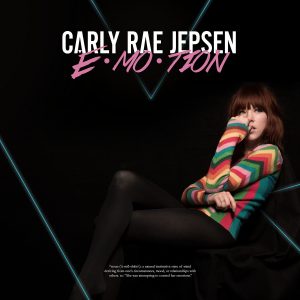
Would any list of my favorite albums of any kind be complete without mentioning Emotion? I think NOT! (This is now your one and only time to roll your eyes before I ramble on about goddess queen icon Carly Rae or else you will be asked kindly to live this exhibition). It just needs to be said that Jepsen is not the “Call Me Maybe” girl anymore, and this album singlehandedly proved she is capable of so much more as an artist. Heavily ‘80s influenced dance-pop fits our Canadian pop princess quite well, it seems, but it didn’t catch on with the public as much as critics (and the gays) would have liked it to; it underperformed commercially, despite the success of the single “I Really Like You” (which doesn’t even sound like the rest of the album, really). But in lieu of commercial success, Emotion received critical acclaim and reinvigorated Jepsen’s career as somewhat of an “indie darling” for some, drawing a newfound fanbase to her music that were not present in the “Call Me Maybe” days. She also released Emotion: Side B a year later, an 8-song EP of tracks that were cut from the original record, which just furthers the showcase of her ability to sing a pop song, because all of those songs are amazing too.

No comments:
Post a Comment